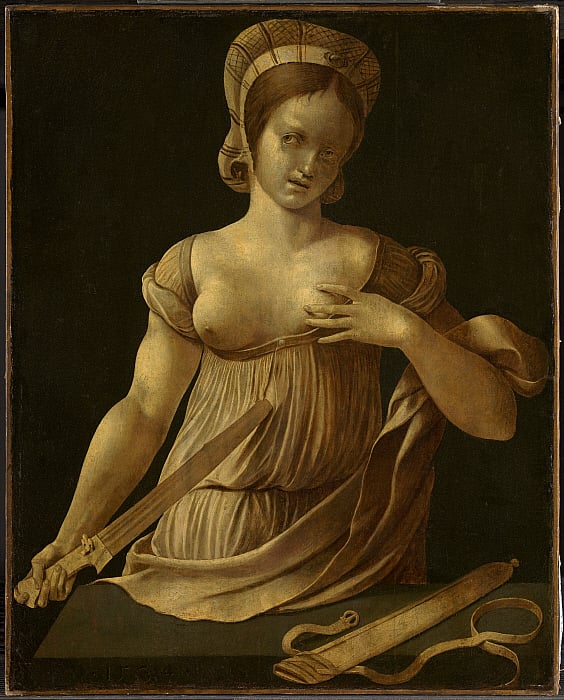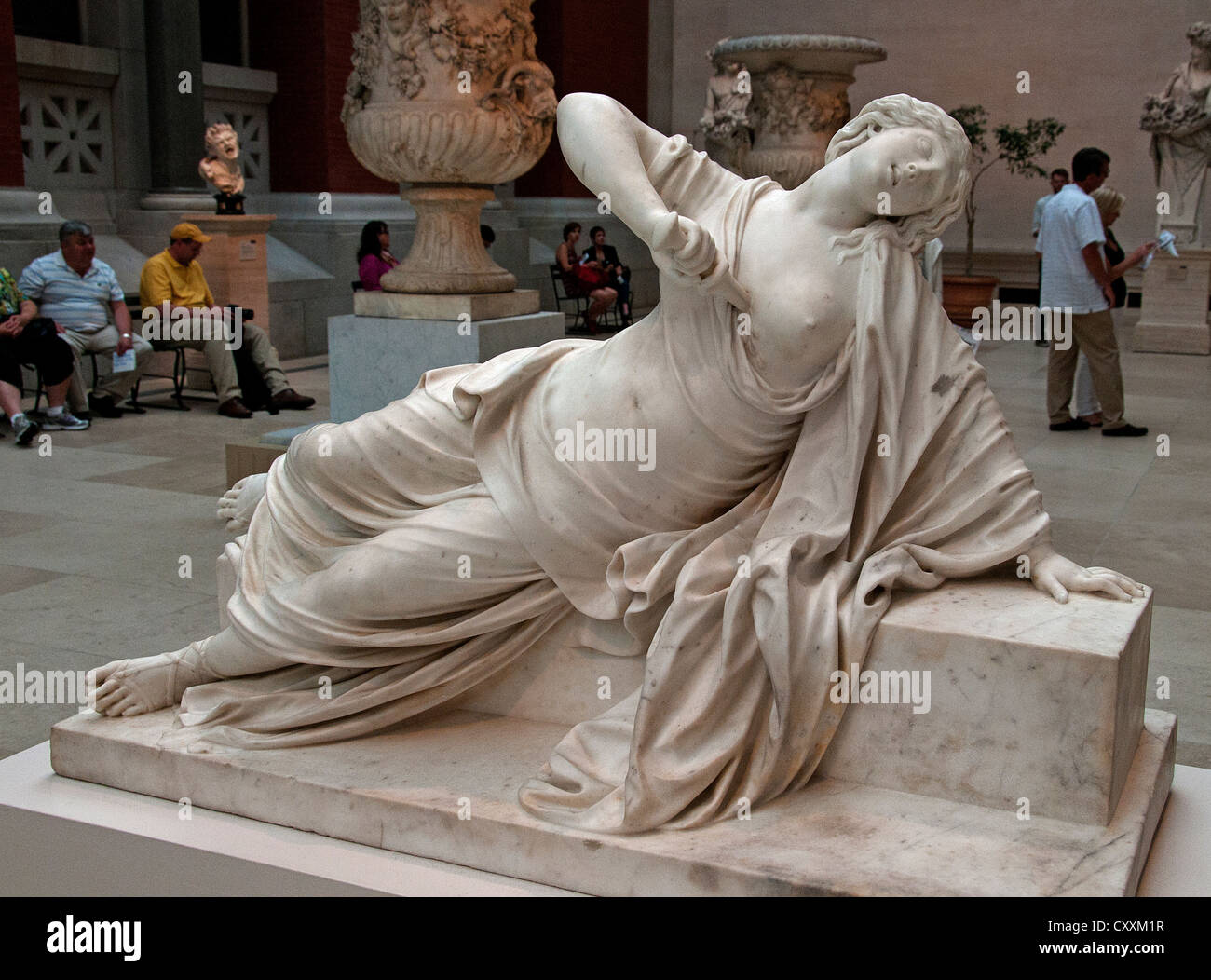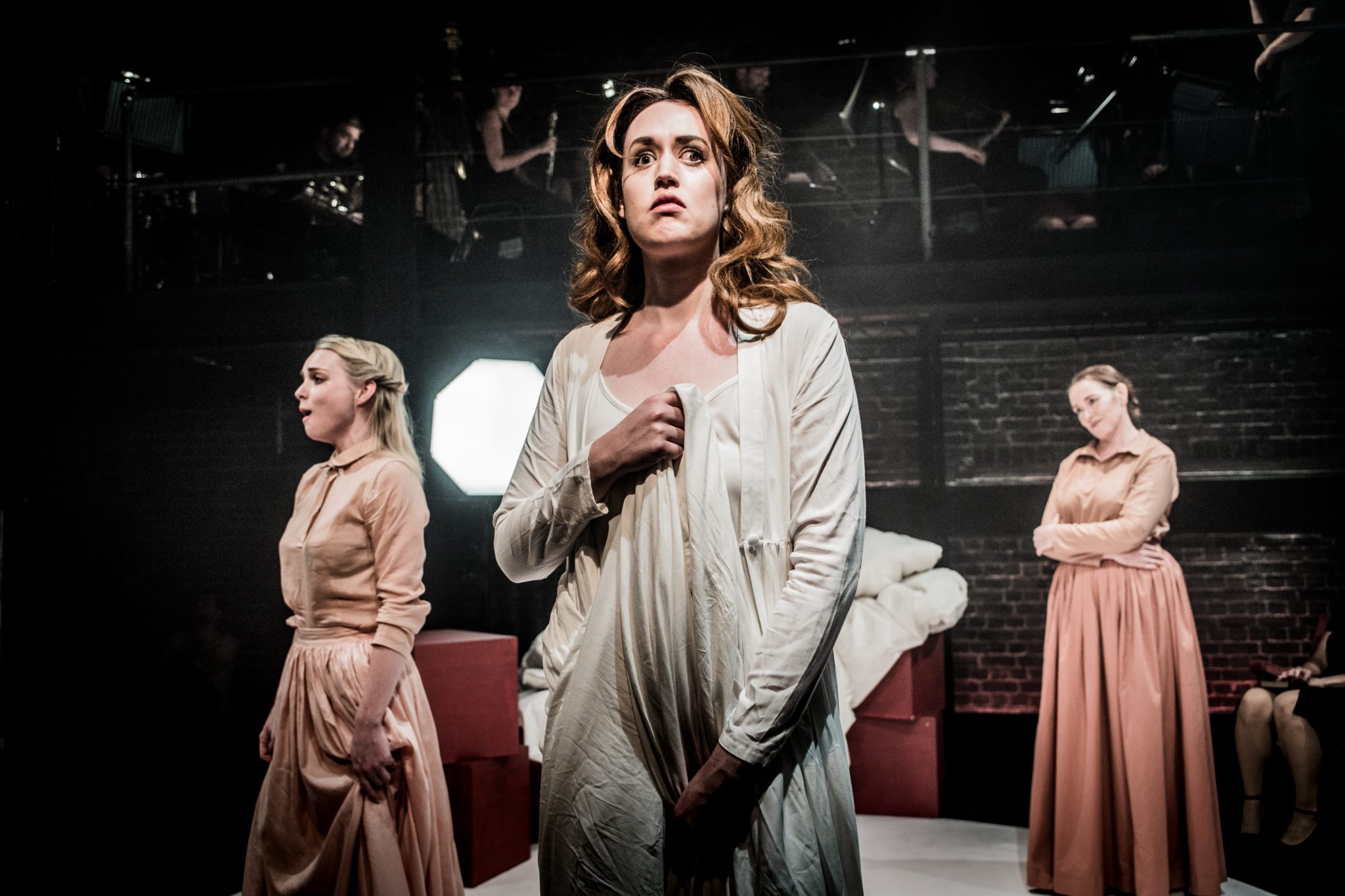

Upon entering, Lucretia is seen weaving wool by herself by the lamplight with only the company of slave girls, unlike the other wives who had spent their night mingling and drinking with each other. They mount their horses and head to Collatia, a Roman town governed by Collatinus, and into the quarters where Lucretia resides. The men drunkenly argue on the subject of wives, each man praising his own, and Collatinus decides that the mere sight of his wife at such late hours would put an end to the debate altogether. The story begins with Lucius Tarquinius Collatinus, Lucretia’s husband, and his companions drinking at the house of Sextus Tarquinius, son of the king Tarquinius Superbus, one night.

Livy narrates the events leading up to the climax of her rape, as well as the aftermath and her impact on the founding of the republic. In Book 1 of Ab Urbe Condita, “From the Founding of the City,” Titus Livius, or Livy, a Roman historian whose works are largely viewed as reliable historical sources, recounts Lucretia’s story. Subsequently, Roman society encouraged women, and especially young girls, to view her as a matron for model behavior.Īs the victim of the story, the glorification of Lucretia’s story after her death reveals deeper insight into the sexist roles women were expected to conform to in ancient Rome. Gaining popularity immediately after her death, Lucretia became a legendary symbol of beauty, virtue, and chastity. It was narrated and criticized in several different versions of works by prolific Roman writers such as Livy, Ovid, and Dionysius. The story of Lucretia is a mythological and historical tale that has survived since the early origins of Roman history, over two thousand years since its believed origins in 509 BCE. Roman myths, passed down for generations, outlived their society and continue to echo off the tongues of modern storytellers. It’s no secret the Romans were excellent storytellers the proof is longevity. The Christian perspective at end of the opera is difficult and raises all sorts of questions, not least of which is if Tarquinius is forgiven, where does this leave Lucretia? In the final bars, Furness has the padre break open a holy phial and anoint the medic, taking water from the basin and pouring it over her head, which he held back by the hair in an uncomfortable and shockingly tight grasp.Ī tale of rape is never going to be a comfortable night at the opera, but the effect of the ancient story on the male and female chorus had us in deep discussion on the journey home.The birth of the Roman Republic, which would soon transform into a vast empire with a monumental legacy, has brutal origins all beginning with a rape victim. The production’s take on the chorus was fascinating: the padre oversteps his counselling role making occasional tentative advances on the medic throughout, which she repels, but the balance of physical interaction sees the man dominate the woman. Musicians and singers created a tight-knit ensemble with some heartbreakingly beautiful moments, the dense libretto mostly clear.

In the pit, conductor Lionel Friend drew a first-rate performance from his band, the exposed players getting to grips with the delicate nuances so important in this work, building tension with minute attention to detail. Oskar McCarthy’s plotting Junius, MacArthur Alewel’s resonant bass as a fiery Collatinus and the huge menacing figure of splendid baritone Joylon Loy’s Tarquinius made a formidable ensemble. Roman soldier Junius sees political advantage, suggesting to the obsessed Etruscan Tarquinius that “Virtue in women is a lack of opportunity”, setting Tarquinius off on his city escapade, swimming the filthy Tiber. Physically shattered by her military role and deeply conflicted by issues of religion and duty, her clear robust soprano added depth and an inner strength to the character.Ī trio of off-duty soldiers camped outside Rome hear rumours about their wives in the city being unfaithful with husbands away fighting the cause, except Collatinus’ wife Lucretia who remains virtuous.

Horgan’s silvery tenor breathed a padre’s wise council, but it was the more disturbed Richardson’s performance that drew the attention. Robin Horgan and Charlotte Richardson were our excellent guides to the scene in Rome, almost Shakespearean commentators, detached from the action at first but eventually overwhelmed by the powerful story.


 0 kommentar(er)
0 kommentar(er)
